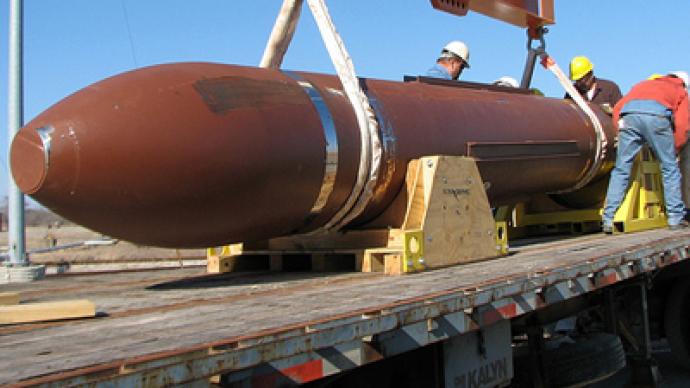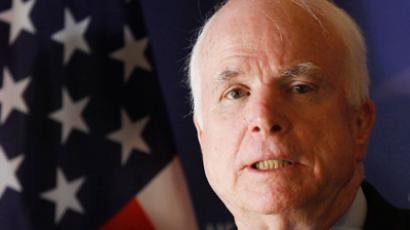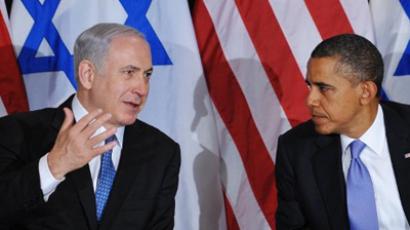'Great weapon': Pentagon 'superbomb' Iran strike would outdo Israel

The US may use a 13,600-kilogram bunker-buster bomb that is currently being developed for a strike on countries like Iran. The “great weapon” is designed to knock out underground nuclear facilities and would supersede Israeli force if used in Iran.
“It has great capability now and we are continuing to make it better. It is part of our arsenal and it will be a potential if we need it in that kind of scenario,” said Lt. Gen. Carlisle at a US defense conference on Thursday.The weapon, known as “the massive ordnance penetrator”, is capable of smashing through 65 meters of reinforced concrete before detonating its target.The Pentagon has already begun work on an array of military options if the heavy sanctions currently imposed on Iran fail to curb its alleged atomic weapons program. US Defense Secretary Leon Panetta told US publication The National Journal that such plans had been in the pipeline “for a long time.”Panetta went on to say that if a strike was made on Iran’s atomic weapons facilities then the US was better equipped to do it than Israel.“If they decided to do it there’s no question that it would have an impact, but I think it’s also clear that if the United States did it we would have a hell of a bigger impact,” said Panetta.Although the Obama administration has emphasized that it prefers diplomatic and economic sanctions to pressure Iran into curtailing its military activities, Panetta and Obama have said that “no options are off the table.” “As the president himself has said, I don’t believe they’ve made a final decision here,” stressed Panetta, saying that he was confident that the US was “weighing all of the ramifications of how best to deal with Iran.”Israeli Prime Minister Benjamin Netanyahu came to Washington for talks last week with a view to ratcheting up pressure on the US for a military strike on Iran’s facilities. The two countries are seemingly at odds with US General Martin Dempsey calling for moderation over Iran earning him the label of “servant of Iran”.
Peaceful policy skin deep
Following Israeli PM Netanyahu’s meeting with Obama, Israel’s Maariv newspaper reported that the US had offered to exchange highly-advanced weaponry in return for Israel postponing an attack on Iran.The report cited unnamed diplomats and intelligence sources and said Israel had been offered the latest models of bunker-busting bombs and aerial tankers to give Israel the edge in the conflict. In return Israel would put its supposed attack plans on the back-burner until 2013. The White House has denied that any such agreement had been reached during the Israeli PM’s visit.Contrary to popular belief, the Israeli armed forces may not have the equipment to successfully outgun Iran. It has much smaller stocks of bunker-buster missiles and out of date refueling planes, therefore it may have to lobby for US military aid if it is to be successful in a potential conflict.














